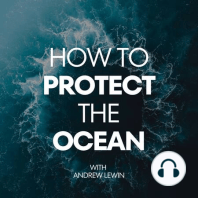18 min listen

SUFB 383: Tracking Oil Spills and Illegal Fishing From The Sky With Paul Whitaker
SUFB 383: Tracking Oil Spills and Illegal Fishing From The Sky With Paul Whitaker
ratings:
Length:
66 minutes
Released:
Oct 18, 2017
Format:
Podcast episode
Description
Marine Conservation is great when we see things like water quality policies and Marine Protected Areas implemented into law by governments; however, enforcing those policies on the Ocean is a huge challenge. It takes a number of tools and experts to create a Management Plan that will deter and prevent future problems. Paul Whitaker, from KSAT, is our guest on the podcast today and he is leading projects that track oil spills and illegal fishing on the Ocean around the world, including Easter Island and Gabon. Paul gives us the breakdown of how Satellites can help us identify oil spills on the water and identify ships that are fishing illegally with other tools such as AIMS that enhances management and enforcement to further protect the Ocean. Check out the podcast for more details. Enjoy the Podcast!!! Let me know what you think of the episode by joining our Facebook Group for the Podcast. This episode was brought to you by Octo (Open Communications for The Oceans). Check out their recent MEAM (Marine Ecosystem And Management) issue helping inform the Marine Science and Conservation field around the world. Support Speak Up For Blue's Efforts to create a free pr=resource program for Ocean Citizen Scientists to help move Marine Science and Conservation forward by collecting information for various Citizen Science program. Contribute to our Patreon Campaign
Released:
Oct 18, 2017
Format:
Podcast episode
Titles in the series (100)
SUFB 067: Climate Change Needs to be Halted for Coral Reef Survival: COP 21 is in full effect and the talks are happening. Canada jut committed to 1.5 C below Pre-industrial levels. However, action will be the key to real change and it is needed to make sure coral reefs survive and, in turn, the many people who depend... by How To Protect The Ocean